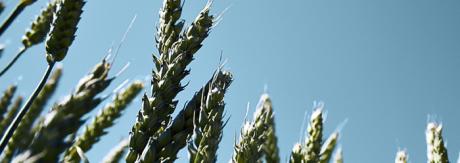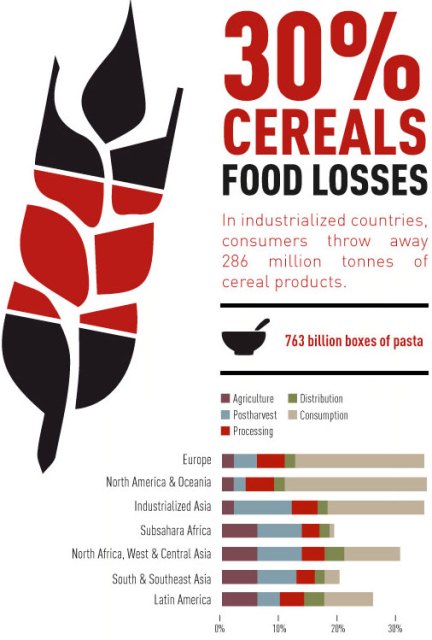
30 % of world cereals are wasted every year
One of FAO’s main conclusions is that the amount of food lost or wasted every year is equivalent to more than half of the world's annual cereals crop (2.3 billion tonnes in 2009/2010). If you compare this amount with the amount used for biofuels, this sheds a different light on the debate over food vs. fuel, as worldwide, 8 % of corn produced is used for biofuels. Furthermore, from this amount, about 1/3 is returned to the food and feed markets, as biorefining allows you to use all parts of the grain.

The above figure shows the amount of cereals wasted and where in the food chain the waste occurs. The amount of cereals wasted each year corresponds to 763 boxes of pasta.
The food currently wasted in Europe could feed 200 million people.
Even if just one-fourth of the food currently lost or wasted globally could be saved, it would be enough to feed 870 million hungry people in the world.
Seen in the light of the global food waste, biofuels plays a relatively small part in occupying land for the cultivation of biomass. At the same time, biorefining allows you to optimise the use of the global land areas, as biorefining enables you to use all parts of the feedstock.
If we in a future with even more people sharing the same planet are to be able to feed all, biorefining is part of the solution and not one of the obstacles.
Follow the developments within biorefining. hveiti regularly informs about our efforts to improve the environment.
Copyright © 2011 | Hveiti | Design Rabotnik




